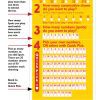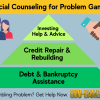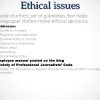In this digital age, where technology is everywhere, it’s important to ensure that we protect our children from harmful influences. One potential concern that parents may have is exposure to gambling. So, how can you protect your children from this? Let’s explore some strategies together.
Gambling has become more accessible than ever, with online platforms and advertisements bombarding us at every turn. It’s crucial for parents to be proactive in shielding their children from the negative effects of gambling.
But don’t worry, I’ve got your back! In this article, we will dive into effective ways you can keep your kids safe from gambling’s grasp. From open communication to setting boundaries, we’ll cover it all. So, let’s get started on this important journey of safeguarding your children from exposure to gambling!
1. Start an open conversation: Talk to your children about the risks and consequences of gambling.
2. Set parental controls: Use parental control apps or software to block access to gambling websites.
3. Monitor online activities: Keep an eye on your children’s online activities and know the websites they visit.
4. Teach critical thinking skills: Help your children develop critical thinking skills to evaluate online content.
5. Encourage alternative hobbies: Promote healthy activities and interests to divert their attention from gambling.
By following these steps, you can safeguard your children from the harmful effects of gambling.

The Importance of Protecting Children from Exposure to Gambling
Exposure to gambling at a young age can have serious consequences on a child’s well-being and development. As a parent or guardian, it is essential to take proactive measures to protect your children from the harmful effects of gambling. This article aims to provide you with detailed information and practical tips on how to safeguard your children from exposure to gambling.
The Risks of Childhood Gambling
Gambling may seem like harmless fun to some adults, but it can have detrimental effects on children. When exposed to gambling practices, children can develop distorted views on money, risk, and the concept of luck. This distorted perception can lead to financial issues, problem gambling, and even mental health problems later in life.
One major risk is the normalization of gambling. If children witness their parents or other influential figures engaging in gambling activities, they may perceive it as a normal and acceptable behavior. This normalization can increase the likelihood of them engaging in gambling themselves when they grow older. Furthermore, exposure to gambling at a young age may increase the risk of developing addictive behaviors and impulsivity.
It is crucial to address these risks and take necessary actions to protect children from the potential harm of gambling. By implementing protective measures, you can help ensure a healthy and responsible upbringing for your children.
Setting a Strong Foundation: Education and Communication
One of the most effective ways to protect children from exposure to gambling is through education and open communication. Start by explaining to your children the potential risks and negative consequences associated with gambling. Use age-appropriate language and examples to help them understand the concepts. Emphasize the importance of responsible financial management and decision-making.
Encourage your children to ask questions and engage in conversations about gambling. Create a safe space for open dialogue and ensure they feel comfortable sharing their thoughts and concerns. By fostering this environment, you can empower your children to make informed choices and to resist peer pressure related to gambling.
In addition to communication, it is essential to teach children about the value of money and the importance of saving. By instilling a strong financial foundation, children are less likely to be enticed by the allure of gambling. Implement pocket money systems, savings accounts, and other age-appropriate financial tools to help your children develop healthy money habits.
Online Safety: Protecting Children from Online Gambling
In today’s digital age, online gambling poses an additional threat to children. The accessibility of online gambling platforms makes it imperative for parents to take proactive steps to protect their children. Here are some practical tips to ensure online safety:
1. Set up parental controls: Use parental control software to limit your child’s access to gambling websites and apps.
2. Monitor online activities: Regularly check your child’s browsing history and online interactions to ensure they are not engaging in or being exposed to gambling-related content.
3. Educate about online dangers: Teach your children about the risks of online gambling, including the potential for scams, false advertising, and addictive behaviors. Make them aware of the importance of never sharing personal or financial information online.
4. Establish time limits: Set clear rules regarding screen time and the use of electronic devices. Limit the amount of time your child spends online to decrease their exposure to gambling advertisements and content.
5. Engage in online activities together: Consider participating in online activities with your child to foster a sense of responsibility and safety. By being actively involved, you can guide them and ensure they are engaging in age-appropriate content.
Additional Strategies for Protecting Children from Exposure to Gambling
Teaching Responsible Gambling
While the primary goal is to protect children from exposure to gambling, it is also important to teach responsible gambling practices to older children and teenagers. As they grow older, they will encounter gambling opportunities, and it is crucial to equip them with the knowledge and skills to make responsible decisions.
Start by explaining the risks associated with gambling and emphasizing the importance of setting limits. Teach them to view gambling as a form of entertainment rather than a source of income. Encourage responsible behaviors such as budgeting, self-control, and avoiding chasing losses. By promoting responsible gambling, you can help reduce the likelihood of problem gambling in the future.
Promoting Healthy Alternatives
Another effective strategy is to provide children with healthy alternatives to gambling. Encourage them to participate in activities that build skills, promote social interaction, and boost self-esteem. Sports, arts and crafts, music, and volunteering are just a few examples of engaging alternatives to gambling.
By fostering a supportive environment and offering diverse activities, you can help children develop a range of interests and hobbies. These alternatives not only distract from gambling temptations but also provide valuable life experiences and personal growth opportunities.
Creating an Open and Supportive Environment
Lastly, it is crucial to create an open and supportive environment where children feel comfortable seeking help and advice if they are struggling with gambling-related issues. Make it clear that you are available to listen, offer guidance, and provide support without judgment. By fostering such an environment, you can significantly reduce the stigma associated with gambling problems and encourage early intervention and treatment if necessary.
In conclusion, protecting children from exposure to gambling is essential to their well-being and future development. By educating, communicating openly, and implementing practical strategies such as online safety measures, responsible gambling education, promoting healthy alternatives, and creating a supportive environment, you can significantly reduce the risks associated with childhood gambling. Remember, the actions you take today can shape a responsible and healthy attitude toward gambling for your children in the future.
Key Takeaways: How can I protect my children from exposure to gambling?
- 1. Educate your children about the risks and consequences of gambling.
- 2. Monitor their internet and gaming activities to ensure they are not exposed to gambling content.
- 3. Discuss the importance of responsible gaming and setting limits.
- 4. Encourage healthy alternatives like sports, hobbies, and social activities.
- 5. Lead by example and avoid engaging in gambling behaviors yourself.
Frequently Asked Questions
Welcome to our FAQ section on how to protect your children from exposure to gambling. We understand that as a parent or guardian, it’s important to ensure your children are safe from any potential harm, including the risks associated with gambling. Below are some common questions and answers to help you navigate this topic and keep your children protected.
Q: Why is it important to protect my children from exposure to gambling?
A: It is crucial to protect your children from exposure to gambling because they may not have the cognitive abilities to understand the potential risks involved. Gambling can be highly addictive and can have detrimental effects on a person’s mental health, finances, and relationships. By shielding your children from gambling, you are helping to ensure that they grow up with a healthy understanding of money management and responsible decision-making.
Additionally, exposure to gambling at a young age can normalize the behavior and make them more susceptible to developing gambling-related problems in the future. By setting boundaries and protecting them now, you are helping to shape their attitudes and behaviors towards gambling as they grow older.
Q: How can I effectively communicate with my children about the risks of gambling?
A: Open and honest communication is key when discussing the risks of gambling with your children. Start by creating a safe and non-judgmental environment where they feel comfortable sharing their thoughts and experiences. Use age-appropriate language and examples to explain the potential dangers of gambling, such as the importance of making informed decisions and understanding probability. Encourage questions and active listening to ensure they grasp the information you are providing.
Furthermore, it is crucial to lead by example. Show your children responsible financial behavior and decision-making. Teach them about the value of saving money, setting goals, and making wise choices. By modeling these behaviors, you are providing them with the tools to make responsible decisions when it comes to money and gambling.
Q: What steps can I take to limit my child’s access to gambling content?
A: There are several steps you can take to limit your child’s exposure to gambling content. Start by setting up parental controls on devices and internet browsers. Many operating systems and internet service providers offer built-in parental control features that allow you to block access to gambling websites. Additionally, consider installing content filtering software or apps that can help block gambling-related content.
It’s also important to closely monitor your child’s online activities and social media interactions. Regularly check their browsing history and set clear boundaries on what types of websites and content are allowed. Encourage open dialogue about their online experiences and educate them about the potential dangers of engaging with gambling-related content.
Q: How can I educate my child about responsible gaming habits?
A: One effective way to educate your child about responsible gaming habits is by teaching them about the concept of moderation and self-control. Explain that gambling should only be done for entertainment purposes and never as a way to make money. Emphasize the importance of setting limits on time and money spent on gaming activities.
Encourage them to engage in other hobbies and activities that promote a healthy and balanced lifestyle. By focusing on a variety of interests, they are less likely to develop an unhealthy fixation on gambling. Additionally, highlight the importance of recognizing warning signs of problematic gambling behavior, such as chasing losses or negative emotional reactions to losing. Teach them to seek help and support if they feel they are developing an unhealthy relationship with gambling.
Q: What resources are available to help me protect my child from gambling?
A: There are numerous resources available to help you protect your child from gambling. Many organizations and websites provide educational materials and guides specifically designed for parents and guardians. These resources offer valuable information on how to talk to your children about gambling, recognize warning signs, and implement protective measures.
You can also reach out to your child’s school or local community organizations for additional support. They may offer workshops or presentations on gambling prevention and awareness. Additionally, consider connecting with other parents to share experiences and strategies for protecting children from exposure to gambling. Remember, you are not alone, and there is a wealth of support and knowledge available to assist you in this important endeavor.
Gambling Help for Kids as Young as 13 | Good Morning Britain
Summary
So, to protect your children from gambling, there are a few key things to remember. First, have open and honest conversations with them about the risks and dangers of gambling. Second, set clear rules and boundaries around their access to gambling-related content, both online and offline. Third, monitor their online activities and use parental control tools to block access to gambling websites. Lastly, encourage them to participate in healthy, non-gambling activities and hobbies that promote a balanced lifestyle. Remember, your role as a parent is crucial in guiding and protecting your children from the harms of gambling.









